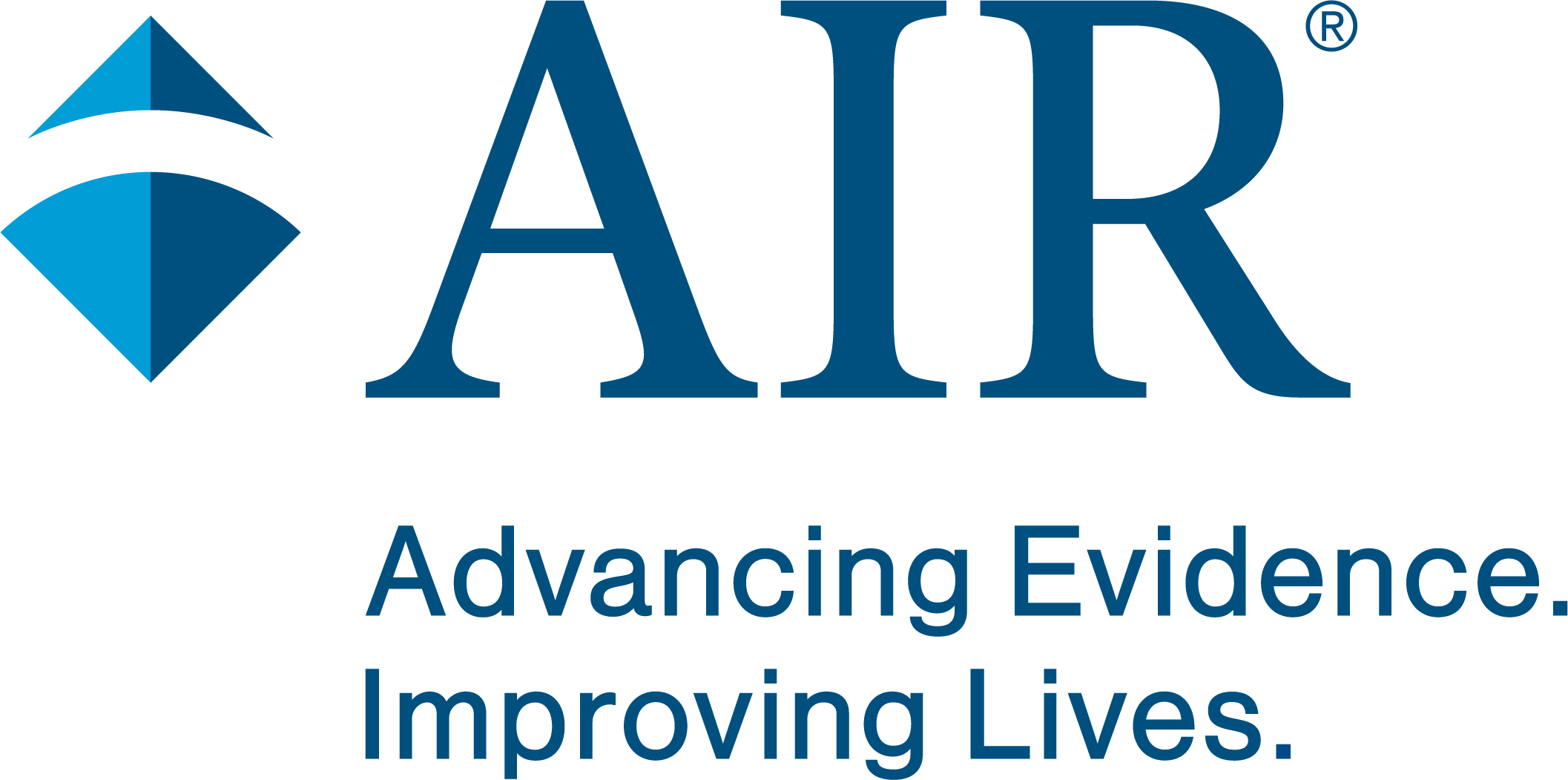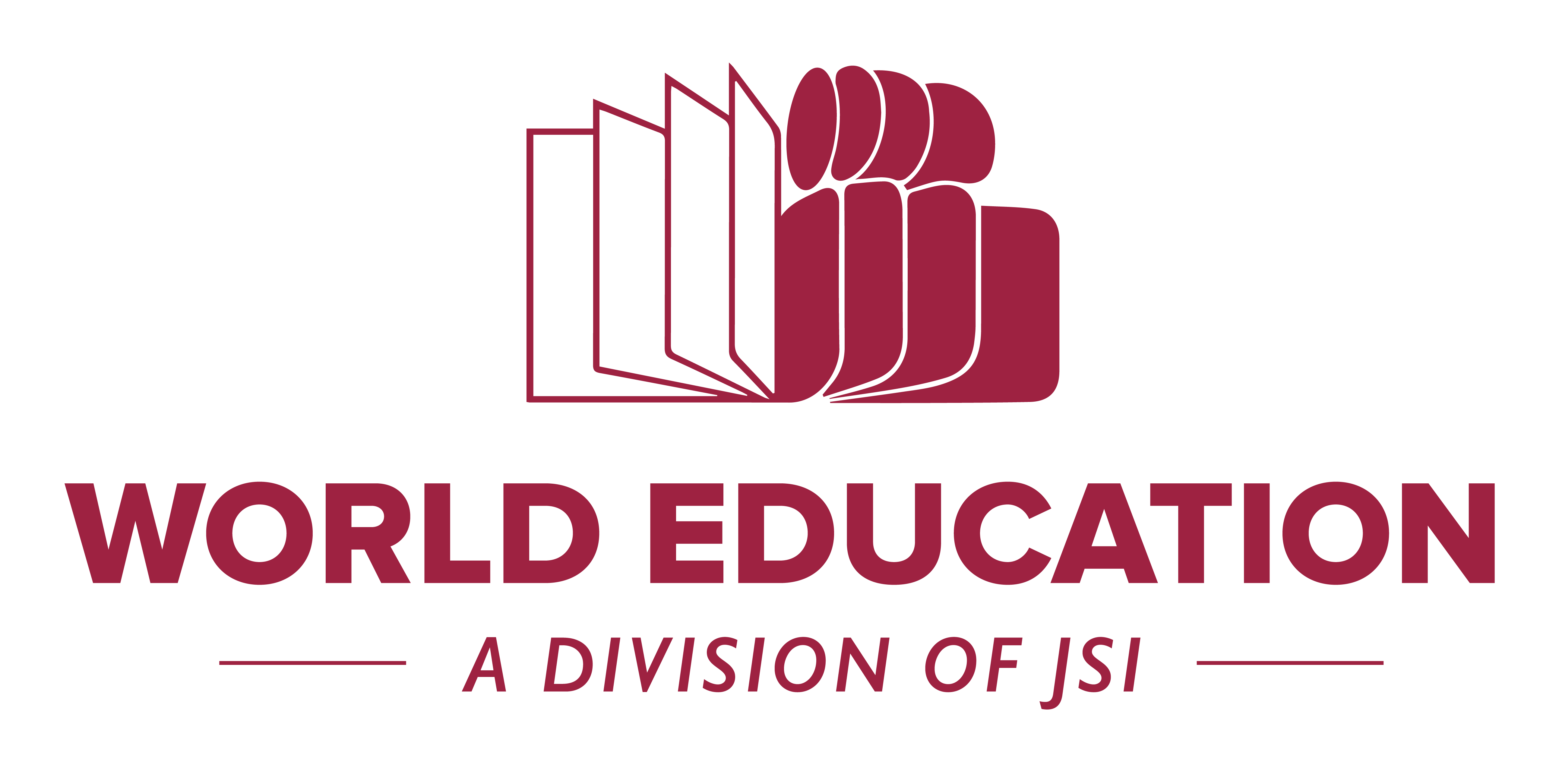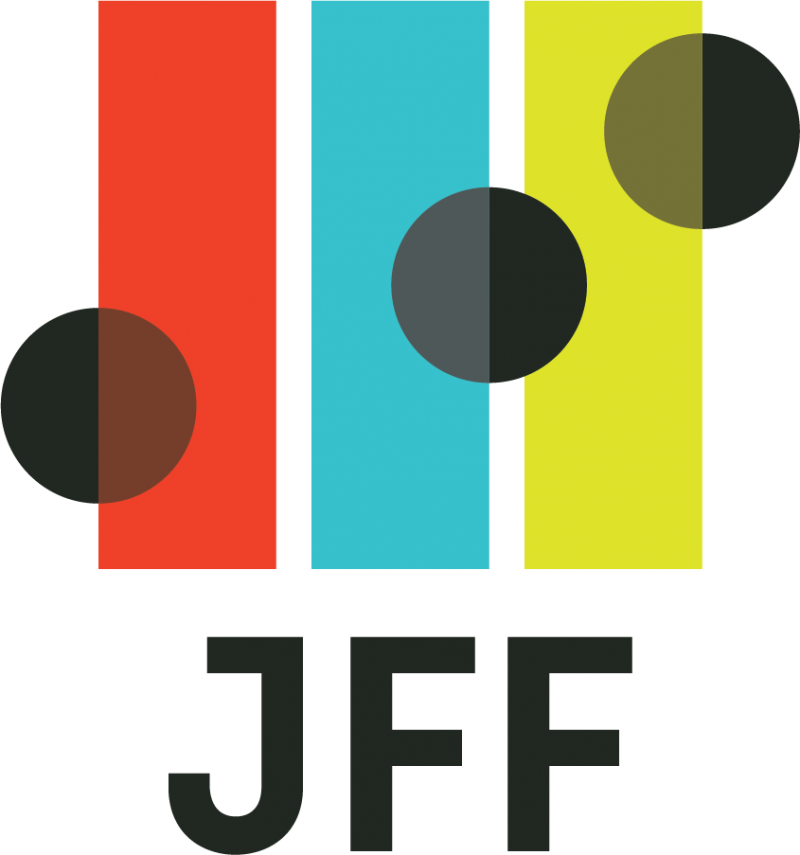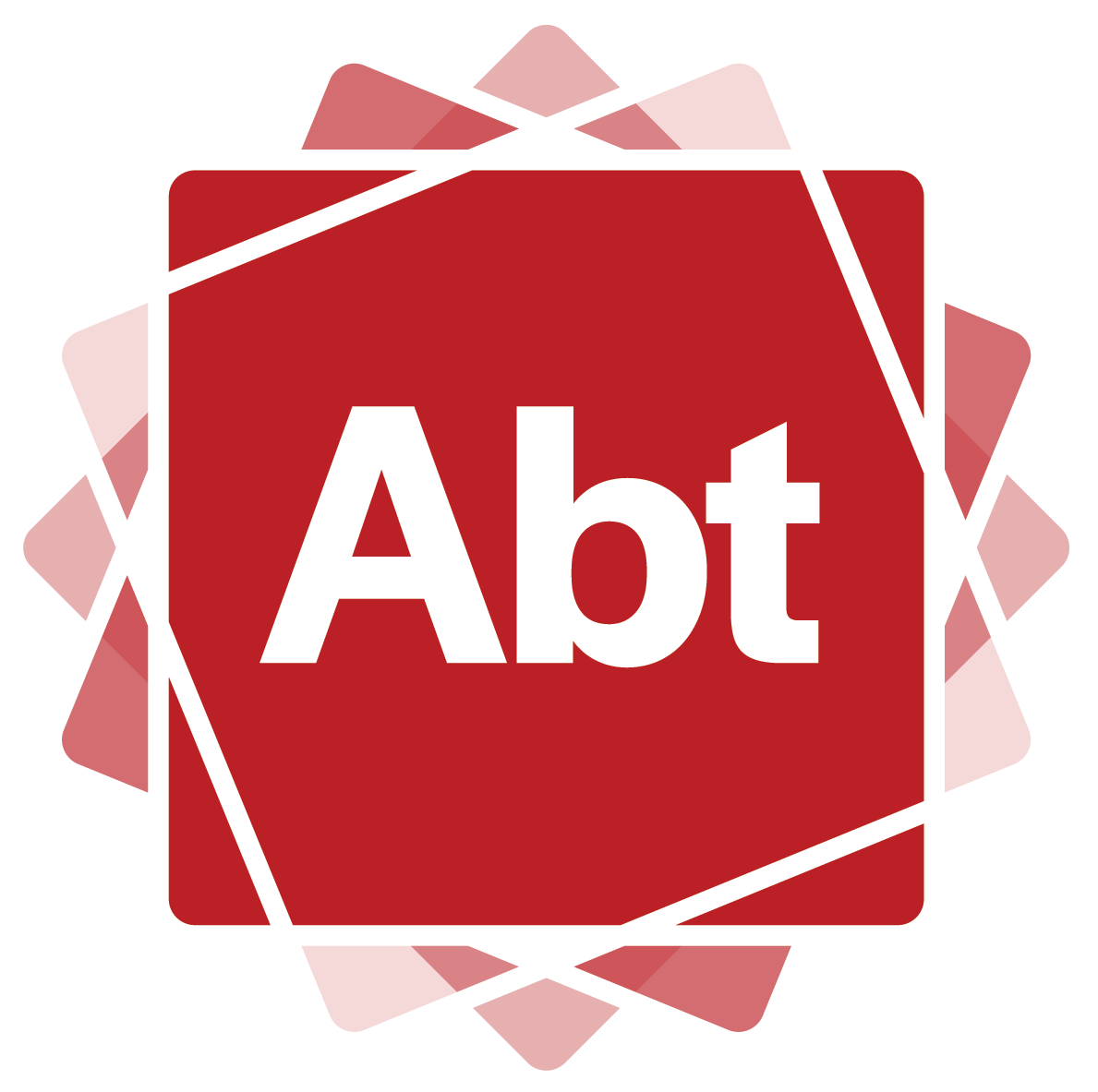Displaying results 21 - 30 of 36
Resource
Subject Area Frameworks for Adult Learners
Posted on
Description
These aggregate frameworks provide a structure to support learning in five subjects relevant to adult learners: Civics Education, Digital Literacy, Financial Literacy, Health Literacy, and Workforce Preparation. They include domains, topics, and subtopics in each subject. The frameworks were developed by aggregating existing curricula, assessments, and frameworks used in adult education and compiling insights from organizations and individual instructors. Use them to support Teaching Skills That Matter-aligned instruction, to locate and use resources in SkillBlox, or as a checklist for planning instruction and assessment.
Resource
Building Knowledge and Evidence About Using Digital Technologies in Adult Foundational Skills Programs
Posted on
Description
Recent activities and events spurred adult educators’ interest in digital technologies, including the Barbara Bush Foundation Adult Literacy XPRIZE competition; the development of digital products by adult education publishers; and the COVID-19 pandemic, which prompted adult foundational skills programs to shift from in-person classes to virtual instruction. As interest in digital technologies grows, the need for information about how to implement these technologies and what works for whom under what conditions also grows.
Although some form of technology has been used to teach adult foundational skills for at least 3 decades, the knowledge base about the implementation and effectiveness of technology with adult learners is limited. The recent expansion of technology use in adult foundational skills programs suggests the need for increased efforts to develop knowledge and evidence about the types of technologies and tools that can be used effectively to assist adult learners in enhancing their foundational skills and facilitating their lifelong learning.
Author: Judith A. Alamprese, Principal Scientist, Abt Associates
Read the attached article below for the full paper.
Resource
Highlighting Innovative Practitioner Uses of Digital Technologies in Adult Foundational Skills Instruction
Posted on
Description
Throughout the ongoing COVID-19 pandemic, teachers delivered instruction in new ways, drawing on technology tools and digital resources to support learners whom they could not teach in person (Belzer et al., 2020). To succeed, teachers had to redefine their work—especially in the way they planned or designed instruction (Vanek, in press). This break from traditional instruction served as a laboratory of sorts and illustrated the promise of educational technology (hereafter, edtech) for improving and enhancing instruction.
To explore and learn from the ways that adult educators are experimenting with digital technologies, the final convening of the U.S. Department of Education’s Institute of Education Sciences–funded Center for the Study of Adult Literacy included a session focused on this topic. The session titled “Leveraging Digital Technologies for Adult Foundational Skills Instruction” provided an opportunity for attendees to hear about promising strategies, resources, and practices that became visible through technical assistance provided by the EdTech Center@World Education to teachers, program administrators, and state-level leaders leading up to and throughout the pandemic.
Authors:
Dr. Jen Vanek, Director of Digital Learning and Research at The EdTech Center@World Education
Jeffrey Goumas, Senior Technical Advisor at The EdTech Center@World Education
Read the attached article below for the full paper.
Resource
National Action Plan for Adult Literacy
Posted on
Description
Conceived and convened by the Barbara Bush Foundation for Family Literacy, the first-ever National Action Plan for Adult Literacy is a multisector, multiyear initiative to transform adult and family literacy for millions of Americans by driving inclusive, collective action to address systemic challenges over the next five years.
Resource
Findings from a National Landscape Scan on Adult Digital Literacy Instruction
Posted on
Description
In the first year of the Digital Resilience in the American Workforce (DRAW) initiative, Jobs for the Future (JFF), World Education, and Safal Partners launched a landscape scan to better understand what training resources and approaches are most relevant for educators seeking to increase foundational digital literacy and digital resilience for an adult learner population. Over the past decade digital literacy has emerged as an essential skill for personal, civic, educational, and career success. Yet few adult education professionals – including, but not limited to, those teaching in AEFLA-funded programs – have been trained to help learners develop the confidence, self-efficacy, and digital resilience they need to adapt to today’s digital demands.
Resource
Launching a Digital Literacy Accelerator
Posted on
Description
The Office of Educational Technology (OET) at the U.S. Department of Education is actively looking for ways to promote digital literacy. OET believes that one effective way to support digital literacy is through innovative educational technology (edtech) tools created by a diverse array of developers who have a range of different backgrounds, life experiences, and education.
This report, coauthored by OET and WestEd staff, is aimed at agencies interested in supporting edtech or digital literacy accelerators, as well as education leaders interested in supporting strategies to address misinformation.
This report examines the following questions about the DLA:
What did OET and WestEd learn from research and the current state of the field of digital literacy to develop and scale innovations?
What were the problems teams were trying to solve?
What did OET and WestEd learn when teams applied their innovation to the identified problem?
What are the barriers to new innovations in the digital literacy space?
What best practices can OET and WestEd extract from the accelerator and apply to future thinking?
Based on OET and WestEd’s work with the DLA, what recommendations do we have for federal agencies to support the field of digital literacy?
Resource
Advancing Digital Equity for All
Posted on
Description
Community-Based Recommendations for Developing Effective Digital Equity Plans to Close the Digital Divide and Enable Technology-Empowered Learning
In spring 2022, the U.S. Department of Education’s Office of Educational Technology (OET) committed to advancing digital equity through the Digital Equity Education Roundtables (DEER) Initiative. Through DEER, OET hosted a series of national conversations with leaders from community-based organizations, as well as families and learners furthest from digital opportunities. The “Advancing Digital Equity All” resource illuminates insights from these conversation to highlight the barriers faced by learner communities and promising solutions for increasing access to technology for learning.
The historic federal investments authorized by the Infrastructure Investment and Jobs Act offer critical opportunities for broadband planning that can identify and equitably address the various availability, affordability, and adoption challenges described. Using this guidance resource as a starting point, it is essential that leaders collaborate with those most impacted by the digital divide to develop comprehensive digital equity plans that outline strategies to meet the needs of learners, their families/caregivers, and communities effectively and sustainably.
Resource
Technology-Based Coaching in Adult Education Final Report and Toolkit
Posted on
Description
The TBCAE Toolkit is designed to assist adult education program administrators, program staff, and state staff in planning and implementing text messaging that supports adult education learners’ program participation and attainment of education outcomes. The toolkit comprises of five main sections:
Introduction to Toolkit and Overview of TBCAE Project: Overview of the TBCAE project approach and implementation and implementation and an overview of the tools, checklists, forms, and resources referenced in the Toolkit.
Planning Text Messaging in Adult Education Programs: Descriptions of the steps staff can take in planning the use of text messaging with adult education learners.
Implementing Text Messaging in Adult Education Programs: Information to help adult education staff; implement and track activities in using text messaging.
Adult Education State Leadership Support for the Use of Text Messaging: Suggestions for state staff on how to support adult education program staff in using text messaging.
Appendices: The tools, checklists, forms, and resources referenced in the Toolkit. The appendices are also available in Microsoft Word format to facilitate their use.
Resource
The Rapid Response, Innovation, and Challenges of Sustainability in the Time of COVID-19: Reports from the Field
Posted on
Description
A new report that explores how adult education programs have adapted over time to the constantly changing conditions in programs caused by ongoing but inconsistent and sporadic COVID-19 infections and local policies governing public health. The report also looks at lessons learned after more than a year of remote teaching.
Resource
Digital Resilience in the American Workforce: Technical Assistance Pilot Program
Posted on
Description
The Technical Assistant (TA) Pilot Program is a training program for instructors in adult digital literacy programs whose work is funded under the Adult Education and Family Literacy Act (AEFLA), as well as state professional development leaders. The pilot offers participants an opportunity to engage in peer learning and develop plans for using materials created by the DRAW team to enhance digital literacy instruction and make supplementary resources available to adult education learners. This program will include a webinar, state and local courses, and coaching.






